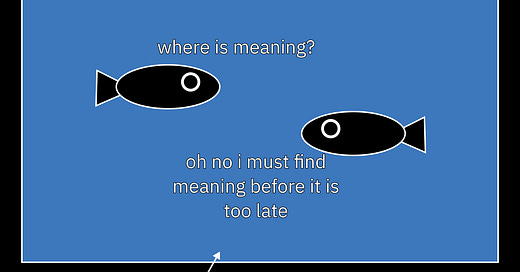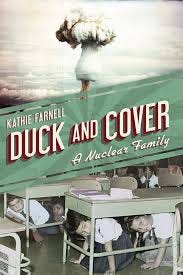If You Like New Year's Resolutions, Don't Read This
The real, real problem with New Year’s Resolutions and why they can be compared to a famous 1951 Propaganda Campaign. Contains a potentially lethal dose of self-awareness.
Warning
This post contains potentially lethal doses of self-awareness, and extreme cynicism.
For all those interested, I’m making very good progress on the goals I outlined last week, and trying my best to intentionally live my best life by staying true to my word of the year for 2025; ‘CASHFLOW.’
This week, I launch a barely justifiable attack the positivity of New Years and explain why I enjoy going to the Sydney Bay Run on Sunday mornings.
The Real, Real Problem With New Year’s Resolutions
New Year’s Resolutions typically fizzle out by mid-February, and yet, year after year, people set new ones. Some forget past failures, others are infused by adorable ‘This year will be different!’ energy.
What explains this phenomenon? Some claim people are too fleeting with their motivation. Others insist the real problem is wayward target-setting, that people’s hopes for the new year are overly hopeful, that their resolutions are born out of a vague desire to ‘improve’ and that this makes them arbitrary and unlikely to stick.
We are preached the importance of being realistic with our resolutions and aiming for ‘1% better.’ The logic is that continual 1% improvement will add up to an exponential reward over time, however, I wonder if the truth is that 1% improvement is all we’re capable of. Human beings improve at a painfully snail-like pace.
While I’m unsure which of these opinions annoys me most, it matters little. They’re all wrong. Today, I’ll explore the Real, Real Problem with this New Year’s fiasco. To do this, I’m going to play devil’s advocate. I’m going to pretend to be very cynical and examine this behaviour through a hyper-critical lens. Just remember that—the cynicism is not the real me. I’m pretending.
If you do that—look at this behaviour hyper-critically, you encounter the obvious. Goal Setting of any form is about either a) acquiring something we want, b) setting a focus or c) improving in a certain area. Either way, and this won’t come as a shock to you, it’s always about becoming someone we want to be. The shock comes instead with this bold and rather cynical claim:
That New Year’s Resolutions and January Goal Setting Spikes are simply a ritualistic, predictable reaction to the fear of death.
The Cynical Fear-of-Death Theory
A typical year is spent in a state of semi-death-denial, allowing us to go about our lives without being in constant existential crisis. But, on birthdays and at year’s end, the cover of denial usually slips and we must face the build up of anxiety.
Overcome with the sense that time is passing us by, we resolve to ‘start making the most of life’ for the 30th, 40th or 50th year in a row. Overloaded with fear, our psychological systems scramble to cope, pushing that fear of death back down while looking for a sense of control to cover it up. The result? A brief surge of motivation, manifesting in a New Year’s Resolution. The Resolution is perfect:
It takes the big problem (Death) and slices off a tiny, seemingly manageable portion (E.g. Health, Hobbies)
It reduces the fight against death to a battle for control over this small area—e.g. more exercise.
If you think about it, read too much into it, and try your best to be cynical, you can link any goal or New Year’s Resolution to a fear of death. Follow enough links, you’ll reach a point where every New Year’s Resolution or impulse for self-improvement is about feeling better (about ourselves).
What’s the link between wanting to feel better about ourselves, and fear of death? Allow me to adopt a cynical perspective and explore:
If life is finite, we have finite time. Noticing the clock tick at year’s end, we’re pushed to make the time we have left meaningful, worthwhile. Panic sets in, and, well… maybe we get a little desperate. It’s like a basketball game—we’re down by ten with only two minutes to run. Losing might not be the end of the world, but when we’re immersed in a game, we identify with it. Out of desperation, we start taking half court shots and run Hail Mary plays.
This would be my analogy for the distracting version of the search for meaning which plagues many a life. Not the Victor-Frankl wholesome search for meaning, but the fish in the pond looking for water type. Of course, the two can overlap and co-occur. In the second type, the distracting search for meaning, we become overly anxious about time’s passing and pressured into making our time feel, seem, or look worthwhile.
Not to fear—mid-February is here.
Come mid-February, we slide back into the sweet and comfortable denial of our everyday lives, returning to blissful ignorance toward our imperfections—allowing the New Year’s motivation, which you could argue is a direct response and therefore proportionate to the unconscious New Year’s anxiety, to fizzle out.
Perhaps the critique people make—that New Year’s goals aren’t realistic, specific enough, measurable or not measurable, and so forth, is because the motivation streams from this force we are not aware of—and are, in fact, trying not to be aware of. These behavioural quirks are like the henchmen of a mob boss who wants to remain unknown and invisible, safely tucked away and in hiding.
So, in short, New Year’s Resolutions are the Duck and Cover of Self-Improvement.
Duck and Cover was what school children in the 1950’s were taught to do in the occurrence of a nuclear bomb—to literally duck for cover under a desk. There was a whole video campaign and demonstration video, it had a friendly-looking turtle and everything. However, I’d like to point out that this would never have worked.
The centre of a nuclear explosion generates heat of around a hundred million degrees Celsius. Human skin melts at around seven hundred degrees Celsius, meaning a nuclear blast is capable of melting human skin almost a hundred thousand times over.
Also, Nuclear blasts generate an initial blast and shock wave, but if that’s not enough there’s several waves of radiation—thermal radiation, ionising radiation and finally residual radiation.
Desk tops are usually made of timber and provide no cover from the side.
Therefore, scientifically speaking, I conclude that a child under a desk would still be reduced to a black smudge in the case of a nuclear blast whether they stand on the desk, next to it, crouch under it, or do the Macarena beside it. Of course, this is preposterous—the Macarena wasn’t released until 1993.
I’m starting to think—and again, this is kind of cynical—that Duck and Cover was propaganda. In saying that, it was kind propaganda. Delude people into thinking a desk can protect them from a nuclear blast, you do the only thing you can—help them manage the fear of their inevitable and unavoidable demise.
This is why I like to spend Sunday mornings at the Bay Run in Sydney’s Drummoyne area. The Bay Run is Sydney’s go-to running spot, a beautiful 7km lap around—you guessed it—the bay. It’s a great place to run because you spend the whole time looking out over the calming blue water, and on a nice day you feel a fresh breeze on your face.
But on these Sunday mornings, I do not run. I go to an average cafe and find an average seat with any sort of view. I order an average, ill-prepared piccolo. I take small sips as I look out, enjoying the sight of all the people running. In their heads, they’re being healthy, flooding their brains with wonderful neurotransmitters, burning calories and enjoying a beautiful outlook and the peacefulness of nature. Yes, all these things are technically true.
But as I sip, and I sip, and I sip, I know better. I know what they’re really running from, and that it can’t be outrun. That’s my little treat for myself—watching them as one watches a pudgy little kid desperately running after that bus he’s never going to catch. They have their fun, and I have mine. I, trying to convince myself I’m not just another sheep. I, the smug S.O.B. conserving calories at the cafe.
The smug S.O.B. who refuses to Duck and Cover.
NEXT WEEK: The Alarm on my Phone Buzzes
The Alarm on my Phone buzzes. It’s a reminder—a reminder everyone gets this time of year. I know what most people do—they snooze it, pretend they didn’t see.
‘Next year, next year,’ they say.
New Year’s Resolutions pile in, ‘New Year, New Me’ energy sweeps the globe, and the great dance goes on. That reminder is the real reminder, the real opportunity presented at New Year’s and select birthdays—an opportunity laced with fear.
It’s the opportunity to confront something…
Next week, we go even deeper into the New Year’s Resolution phenomenon. While this week I bombarded you with bleak, cynical nihilism and dragged you into something of a pit of despair, next year I promise to take you through this dip, up and out of the pit to a new dawn and silver lining. You’ll see why this was a necessary dip in the rollercoaster ride—if you stick around for next week.









